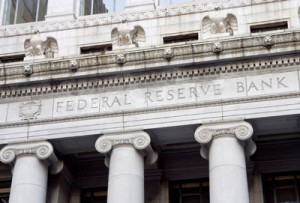
The Federal Reserve announced another round of quantitative easing earlier today, a move that will surely keep interest rates low for the foreseeable future.
By Peter Ricci
Federal Open Market Committee, the Federal Reserve committee responsible for overseeing interest rates and money supply in the United States, made it official today – the Fed will be pursuing a new policy of economic stimulus, one operating under the highly elegant title of “Quantitative Easing 3.”
Though the name sounds like a chapter in a David Foster Wallace novel, the concept of quantitative easing is actually quite simple. The Fed buys hefty amounts of mortgage-backed securities, and by doing so, it puts money back into the economy; thus, the money supply is increased, and interest rates stay low.
Quantitative Easing 3 – A Big Deal
This announcement by the Fed was a long time coming, and it largely satisfied analyst predictions in its size and scope. Here are the main points from the Fed’s announcement:
- The economy is growing, but the Fed is not pleased with how slow and moderate the economic recovery has been, thus far.
- Therefore, the Fed will engage in a third round of quantitative easing and purchase mortgage-backed securities at a pace of $40 billion per month, the most aggressive action it has taken since the financial crisis.
- Along with other policies, the Fed will increase its holdings of securities by roughly $85 billion each month, which will put downward pressure on long-term interest and – in news that should make any agent’s eyes sparkle – support mortgage markets and mortgage interest rates.
Mortgage Interest Rates and Quantitative Easing
Of course, from a real estate perspective, the Fed’s announcements on mortgage interest rates carry the most weight, and the Fed reiterated its commitment to low mortgage rates in its statement:
“In particular, the Committee also decided today to keep the target range for the federal funds rate at 0 to 1/4 percent and currently anticipates that exceptionally low levels for the federal funds rate are likely to be warranted at least through mid-2015.”
In other words, those ridiculously low interest rates that we’ve all grown so accustomed to (and indeed, the 30-year FRM held steady at 3.55 percent last week), will likely persist through the middle of 2015, considering that te federal funds rate, which is by far the most influential interest rate in the financial markets, will be close to zero percent.
Matthew Yglesias wryly observed on Slate that, after the Fed’s announcement, real estate professionals should “build that apartment building right now.” Do you share his zeal for investment, in light of the Fed’s new round of quantitative easing?
